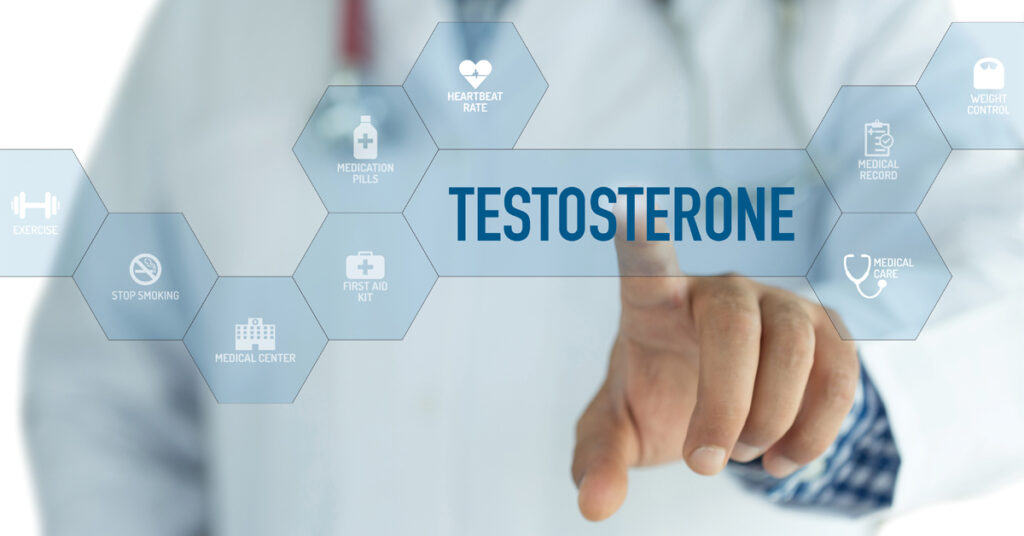Testosterone is a hormone, a kind of messenger that carries signals around your body, helping regulate and manage its various functions. While it is found in both males and females, testosterone is typically present in much higher levels in males. Its presence plays a crucial role in the development of male characteristics and optimal body functioning.
Testosterone:
- Helps to build muscle mass and ensures the proper growth and strength of bones.
- Is pivotal in regulating sex drive.
- Aids in the production of sperm.
- Influences mood and mental capacity.
- Impacts energy levels.
- Helps in maintaining a healthy weight.
What is Testosterone Replacement Therapy?
Testosterone replacement therapy (TRT) is a medical treatment aiming to increase levels in men with low testosterone. TRT:
- Is the preferred treatment for individuals diagnosed with testosterone deficiency. A testosterone deficit is characterized by low testosterone levels coupled with symptoms of low testosterone.
- Is a key option for those suffering from hypogonadism, a condition marked by low testosterone levels alongside infertility.
- Is frequently explored by older men who experience a natural decline in testosterone levels that come with aging.
What is a Low Testosterone Level?
Low testosterone means your blood tests show that you have less than 300 ng/dL of total serum testosterone in the morning after fasting all night. Testosterone levels are checked in the morning when testosterone is at its highest.
For men, a healthy range of total testosterone is usually between 450 ng/dL and 600 ng/dL.
What Are the Symptoms of Low Testosterone?
Candidates for TRT often present with non-specific signs and symptoms of low testosterone that can significantly impact quality of life, such as:
- Fatigue
- Diminished sex drive
- Impaired memory or cognitive functions
- Reduced muscle mass
- Sleep difficulties
- Increased body fat
- Symptoms of depression
How is Testosterone Supplemented?
Testosterone comes in several different forms to help conveniently increase and regulate levels. Many products are available in both branded and generic form. Available formulations include:
- topical gel
- topical solution
- transdermal patch
- injectable
- intranasal gel
- implantable pellets
How Can I Find Out More About TRT?
If you are considering testosterone therapy, especially for normal aging, it is vital to weigh the potential benefits against the possible drawbacks and make an informed decision.
Access to TRT begins with a consultation with your doctor, often a urologist, who can comprehensively evaluate your hormonal profile and assess the appropriateness of therapy.
Your doctor will help you weigh the benefits versus risks of treatment and help you make an informed decision. Some potential risks of TRT include:
- A worsening of sleep apnea: a sleep disorder where your breathing repeatedly starts and stops, potentially leading to serious health issues.
- Skin reactions like acne.
- Prostate complications, such as benign prostatic hyperplasia (BPH), which can cause urinary problems. If you already have prostate cancer, it can also make it grow faster.
- An enlargement of breast tissue.
- It may limit sperm production.
- An increased risk of forming blood clots.
Testosterone therapy can be helpful for men with low testosterone. Don’t let symptoms of Low T interfere with your life – call to schedule a consultation with one of our experts today at 843.347.2450.

